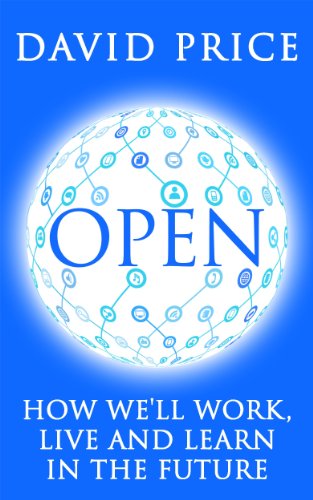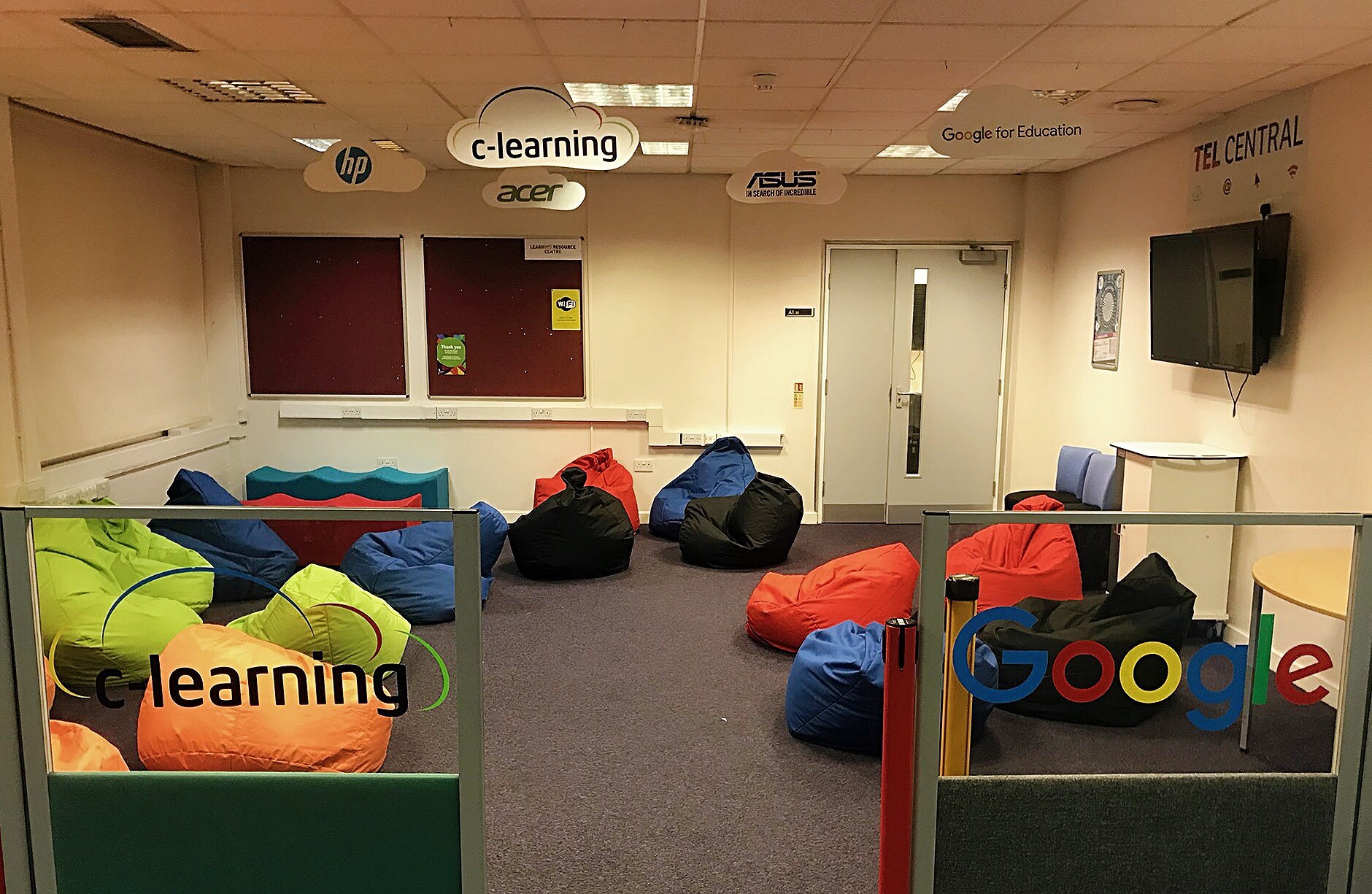Untethered, Collaborative & Empowered. Designing learning experiences for Generation Z

If you had to ‘Google’ the meaning of ‘Generation Z’ you are not alone. Having ‘Googled’ the terms associated with defining generations it turns out that I’m technically generation X with aspirations to be part of Generation Z. Why does this matter?
Well imagine how a new student feels when asked to complete a paper form, print something, use a computer attached via a cable fixed to a wall or travel to attend something when they see there’s no reason to do any of those things. As for the lack of decent pizza, coffee and robust wifi, best not go there.
Welcome to the world of the Generation Z student coming to a College and University near you. Are you ready? Generation Z is more untethered, collaborative and empowered than any generation in human history yet arguably also the most impatient, overwhelmed, distracted and frustrated.
If you want to grow your College, reduce withdrawal rates and increase engagement and success, you need to be.
Untethered
Expecting Generation Z to be comfortable using traditional computers fixed to a wall is like expecting a cat to bark. It won’t feel natural.

Out with fixed machines, in with mobile technology. Access to robust seamless wifi is an essential part of the digital fabric of the day, as is the use of app based cloud technologies.
If your systems and processes aren’t cloud and app based and your customers were born after 1995 you need to change, fast. Generation Z expect online systems to work efficiently for them.
The trend from fixed to mobile, from physical to digital and from dependent to empowered is accelerating and has been happening for some time, starting with the millennial generation.
Social Futurist Mal Fletcher has commented that “Millennials expect to create a better future, using the collaborative power of digital technology” and Generation Z is even more immersed in the digital age, and from an even younger age.
Learning spaces should feel as comfortable to a student as putting on a pair of stretch fit jeans (although Generation Z won’t know what they are for a while). It is my contention that Generation Z do not see wifi as a utility but as part of a lifestyle. The question for education leaders isn’t do we upgrade our wifi, it’s do we stay relevant or not?
Wifi access and cloud based systems means being untethered and that means mobile, flexible and relaxed ways of learning and working tailored around places and spaces that feel both comfortable and safe.
If your learning resource centre has more space provided for physical books than for learners to use mobile technologies, some new thinking is needed.
Wifi means enabling learning to happen anywhere and when combined with platform agnostic cloud based technologies, on any device. If your organisation is paying a licence for a system to reserve time on a fixed computer, questions should be asked. Schools and Colleges need to move on from BYOD (Bring Your Own Device) since they already are and in most cases it’s better technology than the institution can provide.
What’s needed now is an EYOD (Enable Your Own Device) policy. The modern learner is always connected and expects their learning experience to be the same.
Digital is social by design, and being social is now a hybrid of location independent interaction and face to face but often it is the digital connection that happens first. For evidence of this just look at the rise of online dating.
The same principle has huge implications for our world of education and how learners become interested in, apply, enrol, stay and complete a study programme.
Collaborative
Research by Deloitte titled ‘Meet the Modern Learner’ demonstrates that the modern learner develops their own professional networks to secure information relating to buying decisions and wider life choices, raising questions about the purpose of a School, College or University prospectus.
The research also highlights that learners are asking questions in online, open social spaces and then sharing what they know. Additional research conducted by Barclays called ‘Talking about my generation’ adds weight to these trends suggesting that Generation Z is so connected to collaborative digital technology that they struggle to grasp alternatives, something that has profound implications for designing assessment methodologies.
Given that by 2030 Millennials and Generation Z workers will represent the majority of people in work, if part of the purpose of education is to prepare people for meaningful higher value employment then my contention is that assessment methodologies and learning processes should reflect that future, rather than the past, and it’s a digital future and they will likely be cloud workers.
Generation Z are natural multi-taskers and will shift between a range of mobile technologies seamlessly from completing an assignment on a Chromebook to checking their social media on a mobile phone to watching a movie on their tablet.
Thinking about what this means for education technology it is clear that student focused systems will need to enable natural flow between multiple mobile devices as standard. Technologies that require a particular device to operate will become as vulnerable to obsolescence as a high street shop.
Empowered

Generation Z are using digital technology to constantly learn, sharing information and making new connections. They are content creators for their own learning spaces in a way that is unprecedented in all of history.
For anyone seeking a brilliant read on what the open movement is and means and the implications for our world of learning, check out the book ‘Open, how we’ll work, live and learn in the future’ by David Price.
David provides brilliantly provocative and engaging insights into the evolution of online open learning spaces and lessons for educators designing learning experiences fit for the future.
Through open social collaborative networks Generation Z are a new breed of self directed learners, impatient and arguably more easily distracted than previous generations they find the most efficient and effective way of learning and that means non-traditional approaches.
Attention spans for Generation Z in online spaces can be measured in seconds. If they were an app they’d be Snapchat. Create, share, blink and it’s gone.
Expecting new learners who think and live like this to join queues, complete paper based processes or invest their time and money in a standardised learning activity that could be done better if done differently won’t end well, for the College or University that is.
Whilst Generation Z are empowered with permanently connected knowledge resources teachers shouldn’t feel threatened or redundant, in fact they have never been more critical to the learning process.
My contention is that the role of teaching is shifting from knowledge guru to knowledge coaches and their effectiveness will be intrinsically linked to the adoption of current and emerging technologies that have impact.

Generation Z expects loyalty from service providers and the buying power is now firmly on their side.
Generation Z value extreme personalisation and were born social with more than 90% of them having a digital footprint and owning a mobile device on average from the age of seven, according to research by Figaro Digital. In the digital age customer loyalty is a contradiction in terms. Colleges and Universities will need to continue their journey in designing services and learning experiences that engage in new ways or experience unacceptable drop-out rates.
If they don’t feel appreciated with services tailored to them they will move on to a place that delivers that experience, because that’s what they have come to expect.
As part of a globally connected empowered network, Generation Z will expect to see and experience learning spaces that are diverse, personally tailored and that represent them, not the organisation.
Turn on. Tune in. Do Not Drop out.
It is not uncommon for me to see learning spaces at concept stage that still have ports designed to be built into walls where fixed technology will be placed, tethering learning to a static location.
Thinking about the future of learning spaces, if we are authentically committed to providing learning experiences that inspire, engage and transform life chances the only way we’ll do it is to experiment with bold with creative spaces attuned to the digitally fused lifestyles of future generations.
Colleges such as Leeds City College are working to provide this and are a great example of how it should be done in terms of a process of continual evolution, constantly rethinking their learning spaces and continually moving in the right direction.

Get some of these basics right and Generation Z will be a formidable force amplifying your organisation with more influence than any marketing team could hope to achieve.
So turn on the wifi, tune into the next generation and your Generation Z learners will not only be less likely to drop out, but they’ll bring along their friends.
Jamie E Smith, Executive Chairman, C-Learning
Copyright © 2018 FE News











Responses